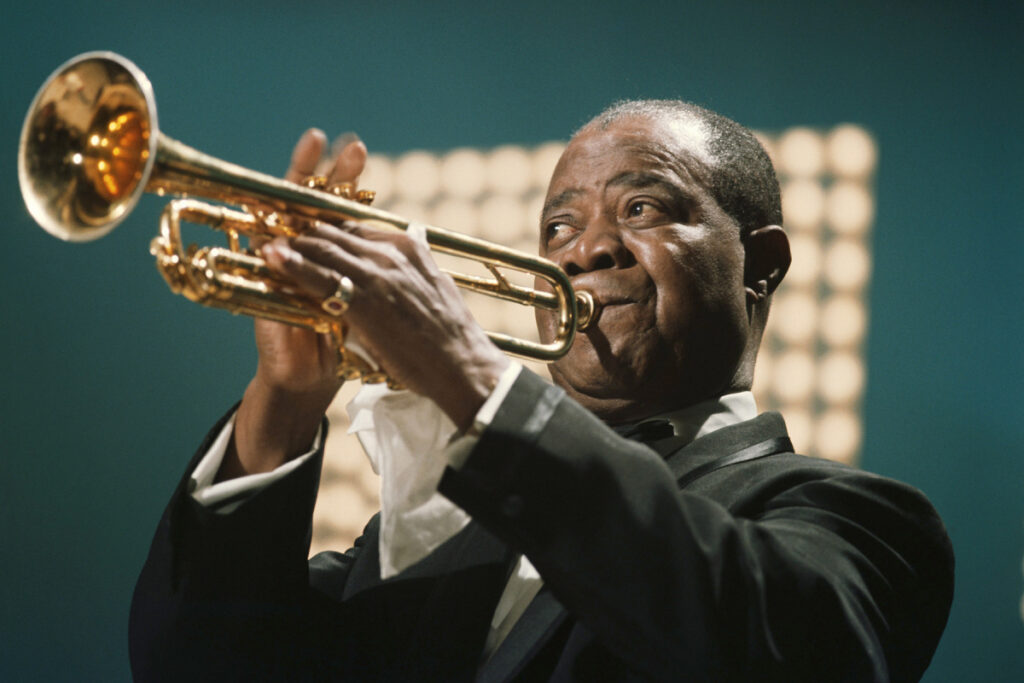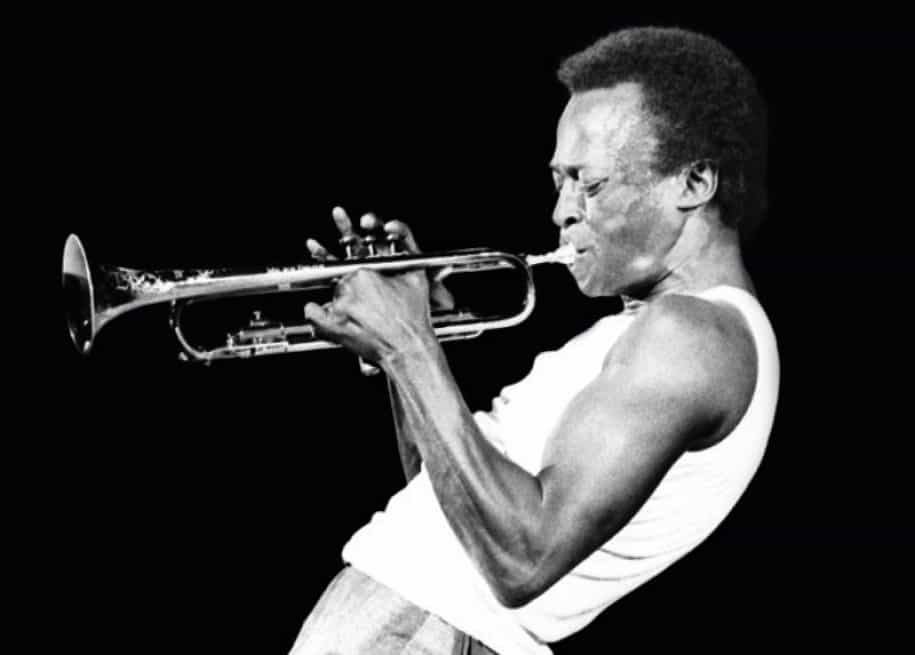
In a word, yes.
That’s not to say there’s no such thing a talent, but it’s overrated.
Read on.
There is such a thing as talent
First, it is true – there is a real thing that we call “talent”. Some people seem to be born with a natural gift for playing a particular instrument. Other people have a natural facility for languages or math or chess or some other skill.
Sometimes we’re talking about little kids that just haven’t been alive long enough to learn how to do what they can do. If there was ever a good argument for reincarnation that might be it.

What about the rest of us?
So, good for them, but what does that have to do with us mere mortals who would like to play the trumpet but can’t seem to get past the beginner or intermediate stages?
Well, for starters, just because some people have a gift for doing something, that doesn’t mean that those skills can’t be learned.
And if a kid can do it, an adult certainly can.
As obvious as that is, we tend to over-emphasis the importance of talent in the arts. We are especially enamoured of “child prodigies” in the arts, in music in particular.
We also imagine that children are better music learners than adults.
Is any of this true?
Adults learn better than children
We don’t think that way in other fields, do we? Why do we think that talent is the overriding element in music but not in other fields?
Would you trust your doctor less if you discovered that she didn’t show signs of medical aptitude at a young age?
Would you think that a kid would be better at learning medicine than an adult?
Why would we imagine that adults have a disadvantage in learning music that they don’t have in any other field?
There are reasons we think this way. One reason is that it often seems to work out that way. Children do seem to do well with music and many adult beginners seem to struggle. But it’s not because of their age.
Here are two critical differences between how children experience music compared to adults:
Very few children play instruments without private lessons.
Only an adult would imagine they could teach themselves music.
This makes a certain amount of sense. After all, children are being taught everything at that stage of their lives. Children are pretty much full-time students.
Adults have moved on from their school days and may have learned many things on their own – it just happens that playing the trumpet isn’t a thing that lends itself to self-teaching. More on this later….
Here are some other important differences between kids and adults in music:
- Children who fail at music typically forget about it and move on to something else. Consequently, we only see the successful child musicians, we don’t see the failures.
- If a kid has extraordinary talent, it is celebrated, long before the child reaches a professional level.
Not so with adults.
Even a talented adult will receive very little positive feedback from family and friends or even themselves for even very strong early attempts. Let’s face it, until music reaches a near-professional level it just doesn’t sound all that impressive, and it’s not cute to see an adult playing a trumpet at a beginner level no matter how talented.
Talent is overrated
But I said talent is overrated, remember? Be careful what you wish for. Wunderkinds who are amazing musicians can find themselves pushed into a difficult and competitive profession that they never really wanted. And because they are so talented, paradoxically, they often have no tools to help themselves when they inevitably get into trouble – when their talent runs out.
Child prodigies make terrible teachers for the same reason. They have no clue how they do what they do and even less clue what a students needs to do.
Why is it harder to teach yourself to play trumpet?
Now let’s talk about why the trumpet is different from other instruments.
Why is it so difficult to teach yourself to play the trumpet?
You might be trying to teach yourself to play the trumpet and you might be a little annoyed to see your friend who is teaching themselves, say, guitar.
They’re doing pretty well on the guitar, they can strum some chords to songs you know, and it sounds pretty good. Why don’t you sound that good on your trumpet?
Is it a lack of talent?
No, it isn’t.
The big difference between the trumpet and other instruments
There is a very important difference between the trumpet and instruments like the guitar (and the piano, drums, bass, banjo, mandolin, and a host of others).
Here’s the big difference: You can look at a YouTube video of someone playing a guitar and you can see exactly what they are doing and how they are doing it. There is very little mystery to how they are physically producing the sounds you are hearing.
You can see it.
Not so with the trumpet.
All you can see watching a great trumpet player is that they are blowing in the small end and moving the three valves up and down.
You could slow the video down and breathe exactly the same way as your favourite player and move the valves in exactly the same sequence and you would not produce anything remotely like what you are hearing. You might not make a sound at all!
Why is that? What is the difference?
The difference is that, unlike the the guitar player’s fingers, all the mechanisms that make sound in a trumpet are inside the body of the trumpet player.
The mechanisms that make the sounds on a trumpet are invisible to the viewer.
Of course those same mechanisms that make trumpet sounds that are invisible to you are also invisible to the trumpet player who is making those sounds.
And it gets worse.
The mechanisms that make trumpet sounds are not only invisible to the player, but they may not even be felt or even understood by the player, even (and especially) highly successful players.
It’s that talented teacher problem again. If you are a talented guitar player you probably know what you are doing and how you are doing it but if you are a talented trumpet player there is a good chance you have no idea what you are doing or how you are doing it.
Sure, you can describe what you feel when you play. But are those sensations causes or side effects? And are you correctly identifying the anatomy involved? Often talented trumpet players who try to describe what they experience when they play tend to be either vague and poetic or just plain non-sensical.
Here are a couple of examples of what I mean.
The poetics and absurdities of trumpet teaching
If you ask a skillful trumpet player how they play high notes they might tell you that they feel pressure in their lower abdomen.
What do you think? Is that a cause or an effect?
Well, give it a try – tighten up your lower abdomen and see if it helps.
Right – tightening your abdomen is not a contributing cause to successful high notes on the trumpet, it is an effect, a sensation associated with good playing but not the actual cause.
The player is doing something that produces the high notes and that something also produces sensations in her lower abdomen – but the lower abdomen sensation is not producing the high notes.
Or the player might tell you that the secret to their success is “diaphragmatic breathing” or “supporting the air with the diaphragm”.
Now they are using anatomy to describe that same sensation of pressure in their abdomen.
The trouble with this is it makes no anatomical sense.
The diaphragm contracts to draw air into the lungs, it has no function in blowing air out – in the same way you can’t push with your bicep muscles.
Even if that did make any sense, how would you put that into action? Can you contract your diaphragm at will? It is ridiculous and not remotely helpful.
Invisible and automatic body mechanisms
All this is true because the mechanisms that produce sound on a trumpet are inside the trumpet player’s body. And what’s more, the parts of her body that make and control trumpet sounds are body parts that normally work best without conscious awareness – the elements of breathing, speaking, and eating.
Speaking
Unless you had a speech impediment as a child it is unlikely that anyone taught you how to make the sounds in your language and yet you make them perfectly. (If you did have a speech impediment your greater awareness of those mechanisms might actually be an advantage to your trumpet playing.)
Breathing & Eating
Similarly, most of the breathing you do is unconscious, including during sleep, and you have probably never given a moment’s thought to the complex mechanisms at play when you eat – and yet these are the mechanisms that you use to play your trumpet.
So that is why you can’t see how a trumpet player is doing what they’re doing and that’s also why successful trumpet players often have no idea what they are doing. In fact, the more talented they are, the less they are likely to know.
Let’s have a real trumpet lesson!
Let’s switch gears. Let’s have a mini trumpet lesson.
Let’s examine some actual anatomy that might actually make a difference in your trumpet playing.
Here’s an easy question
– or it would be if it wasn’t about the trumpet!
If you can already play a bit on your trumpet, can you tell me how you can change from one note to a higher note?
It is hard to imagine a more basic question. If we were talking about any of those other instruments I mentioned before (guitar, piano, bass, banjo, mandolin, etc.) it would be an absurd question – it is obvious how to change notes on all of those instruments and if you didn’t know it would take you about ten seconds to figure it out if you had one to fool around with.
So, what is your answer? Do you think you know? How do you change from one note to a higher note on a trumpet?
Here are some incorrect answers:
Tighten your lips. (or “embouchure” if you want to get fancy)
Blow harder.
Think higher.
Nope. Nope. Nope.
If you simply tighten your lips, you will squeeze the sound until it eventually chokes off completely. The note will not change pitch. If it does, it won’t change much – you won’t be playing first trumpet in an orchestra or jazz band anytime soon – and it will sound terrible.
If you just blow harder, the note you’re playing will get louder, it won’t go higher.
If you just think higher, you will be playing higher…in your mind…and that is all.
So, how about you do all of these things at the same time? Sure, that will make something happen…that is probably what you are doing already…and how’s that working out for you?
I’m guessing it’s not working out too well or you wouldn’t be reading this blog post.
Now all these elements are in fact part of the pitch changing mechanism in trumpet playing but we are missing the single fundamental element that brings it all together.
The actual fundamental mechanism for changing pitch on a trumpet does not have anything to do with those elements. Certainly you will develop your embouchure, your breath control, and your aural imagination as you develop as a trumpet player – but we are missing a key element.
Many successful trumpet players do not realize that their entire success is based on this fundamental, essential element. Some even swear they don’t do it – although X-ray imaging proves them wildly incorrect.
A hint…
Do you know what I’m talking about?
Let me give you a hint. Can you whistle?
What changes the pitch when you whistle?
(If you can’t whistle, no problem – you can be a terrific trumpet player without ever being able to whistle. If you can’t whistle you can still follow this discussion by making an airy sound – just try unsuccessfully to whistle and you will get this soft airy pitch that you can make quiet music with. It’s like whistle whispering.)
Please don’t say lips or air or “thinking” higher and lower.
Pay attention, and maybe try whistling quickly between the highest and lowest notes you can produce, back and forth like a crazy trill.
You got it!
Do you feel something moving in your mouth?
Right. It’s your tongue.
If you didn’t have a tongue you could only play one note on a trumpet.
Your tongue moves up towards the roof of your mouth to produce higher notes when you whistle (and when you play the trumpet), and lower in your mouth to create a bigger oral cavity to produce lower notes.
Now that you know that, you have a valuable tool to work with. After all, if you don’t know how the fundamental mechanism works, any attempt to improve it will be hit and miss – which is exactly how most amateur trumpet players practice – and play! When our method is hit and miss we tend to miss as much or more as we hit…
How to apply this knowledge, and much, much more – take lessons!
Now, just knowing that can be a big help! But the truth is, there is a process and a schedule to develop the skills of tongue, embouchure, and air over time. That’s what lessons are for.
Contact me if you want to get on a path to being the best trumpet player you can be!
